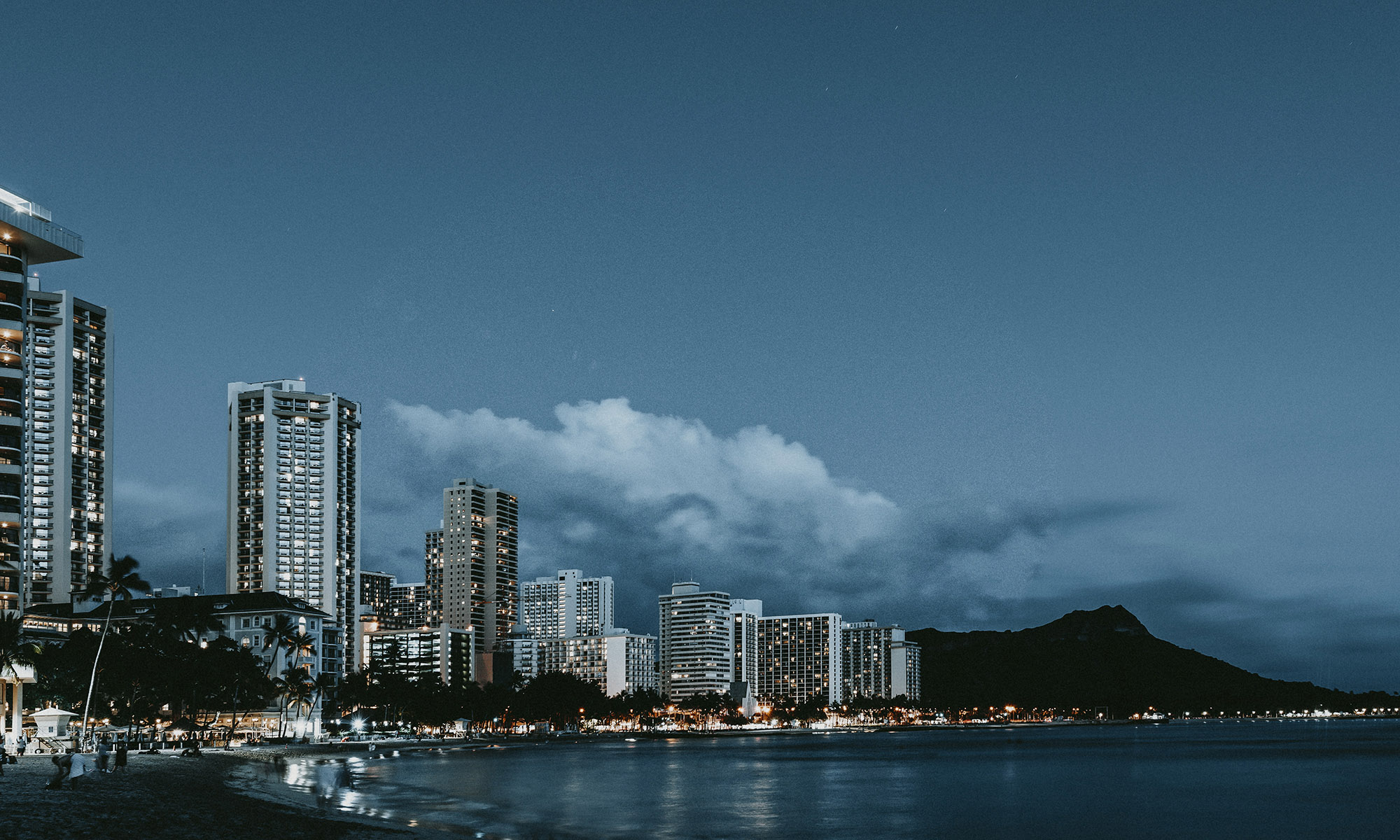
To mark 100 years of English translations of traditional Japanese kabuki productions at the University of Hawaii’s Kennedy Theatre, “The Maiden Benten and the Bandits of the White Waves” — also known as “Benten Kozō” — will be staged this weekend and next on the Manoa campus.
“Benten Kozō” was composed by Kawatake Mokuami. The plot features five distinctive thieves with a mastery of masquerade, and a command of language from the gutter to the poetically sublime.
The array of colorful kabuki characters boast schemes and back stories that lead to shocking revelations, surprising reunions, startling twists and ultimately result in the realization that one cannot escape karma—though in meeting it, one need not abandon spectacle or beauty.
The production also pays homage to Kennedy Theatre’s 60th drama season, encapsulating a century of kabuki tradition in Hawai‘i. Curtain time is 7:30 p.m. Friday (April 19) and Saturday (April 20) and 2 p.m. Sunday (April 21), repeating April 25, 27 and 28.

Free pre-show chats, at 6:45 p.m. prior to the Saturday performances, explore the deep, cultural tapestry of kabuki, Japan’s notable performance art.
A unique aspect of the rehearsal process is that the entire cast first learned the entire play in Japanese to comprehend the proper tone and rhythm of the language in which it is traditionally performed. Indeed, the cadence and the line-delivery in kabuki is unlike western theater. Thereafter the cast devoted months to applying that tone and rhythm to the English translation, so that the performances at Kennedy could be in English, a convenience for most.

Karese Kaw-uh is Benten in the milestone kabuki production at Kennedy Theatre Photo by Christine Lamborn.
MFA theatre candidate Karese Kaw-uh, performing in one of the play’s starring roles, says “To be able to learn from [the masters] in this capacity, it’s nothing like I would have ever experienced elsewhere before. It’s a little nerve-racking but also more than that, it’s a chance to grow.” Kaw-uh made the move to Hawai‘i to pursue her master’s degree after learning about UHM’s internationally recognized Asian Theatre Program.
Staging an English-language kabuki production stands as a testament to the enduring legacy of this art form in the islands, a timeless and arduous endeavor tapping award-winning professional kabuki actors who come from Japan to mentor a dedicated cast, an immersive learning experience tapping all elements of the tradition, from movement to costuming, from makeup to music, that pays homage to the kabuki tradition with deep roots in Japan and now also embedded in Hawaii.
Thus, this endeavor and art form now can be shared with the esteemed island performing ensemble and the curious spectators.
UHM Theatre Professor Julie A. Iezzi leads the collaborative efforts of several kabuki masters, students, and local artists, to create a seamless project that retains the spectacular celebration of kabuki’s charm, appeal, and timeless significance.
“More than what the play itself explores, my focus is on what the process for those involved explores,” says Iezzi. “It is a very different approach to acting, rehearsing, and music—so all the students involved are having to let go of old patterns and trust other modes of learning.”
Since last fall, the UH Department of Theatre & Dance invited several kabuki artists to mentor students in preparation for the play. “They are the masters, so it is absolutely critical that students learn directly from the source rather than through videos and secondhand information,” Iezzi says. “We’re really fortunate that they are willing to come here and work so diligently and for so long with our students.”
Assisting the students are award-winning kabuki actor Ichikawa Monnosuke VIII, two of his apprentices, Ichikawa Takisho, and Ichikawa Utaki, in addition to Ichikawa Komazō XI – a fourth actor joining this April.
Born into one of the oldest acting lineages in kabuki theatre, Monnosuke is an eighth-generation actor in a familial line that traces its roots to kabuki in 1713. Through an interpreter, Monnosuke says, “Something that I would like students to learn from this kabuki project is, first of all, the charm and appeal of kabuki as an art form. It is often said that meaningful experiences nurture budding aspirations, so I want them to experience that from this process.”
In addition to the four actors, kabuki percussionist Kashiwa Senjirō conducted an intensive residency in February. Wig master Nagano Isamu and costume expert Oguri Sachie also conducted workshops during the fall and spring semesters, working closely with the students and faculty behind the scenes.
The musical tapestry of “The Maiden Benten and the Bandits of the White Waves” is woven with precision, creating an immersive sonic experience that is integral to the kabuki tradition. Under the guidance of Honolulu-born shamisen musician and guest artist Kineya Sakio (Bryson Teruo Goda), and UH kabuki percussion veterans Kenny Endo and Professor Kirstin Pauka, the production’s live ensemble composed of UHM students, faculty, and community members, brings the traditional sounds of kabuki to life. The ensemble, featuring 12 musicians backstage, provides a captivating cinematic soundscape that breathes in unison with the actors and the stage action.
There’s another historic milestone ahead for “Benten:” At the invitation of the Gifu Prefectural Government and the Minō Kabuki Preservation Society, this centennial UH English-language kabuki will be the first UH kabuki to perform in Japan, the birthplace of kabuki. These “homecoming” (satogaeri) performances will be at the Seiryu-za (Gifu City) on June 1, and the historic Aioi-za (Mino City) on June 2, 2024.
Tickets: $8 to $25, unreserved seating; $8 for UHM Student with current valid ID,
$15 for non-UHM student/youth; $22 for UH faculty/staff, military, seniors;
$25 for other adults;) available at manoa.hawaii.edu/liveonstage/benten or ktbox@hawaii.edu or at (808) 956-7655.
And that’s Show Biz…
